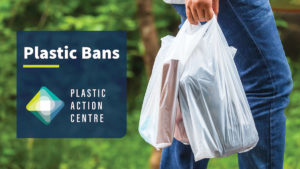- Plastic Bans
- Policy
- National
Plastic bag ban for Halifax could be in place by December
The Halifax Regional Municipality is looking to eliminate the use of between 125 – 208 million single-use plastics bags annually by the end of 2019.
Full Article
HALIFAX, N.S .- The single-use plastic bag issue will be back before Halifax regional council Tuesday.
At the behest of the municipal council’s environment committee, council will consider a motion to direct staff to collaborate with the 10 largest municipalities in the province to draft a bylaw no later than December of this year to eliminate the distribution of single-use plastic bags. That bylaw would be drafted without first attempting a voluntary approach.
At a Dec. 6 environment committee meeting, Coun. Waye Mason (Halifax South-Downtown), recently elected leader of the Nova Scotia Federation of Municipalities, said that mayors of the 10 largest centres across the province have all agreed to bring a bag ban to their councils, but they wanted HRM to take the step first.
“We control this,” Mason said at the December meeting. “We can initiate a province wide ban without waiting for the province to act.”
he motion before council Tuesday will also direct staff to initiate an education campaign for residents and the commercial sector.
125 million to 208 million bags a year
At the beginning of its December meeting, the environment committee considered a motion that recommended staff develop a voluntary reduction plan through education for single-use items, including plastic bags, utensils, cups, containers and straws. Before committee members debated the issue, nine speakers from the gallery addressed the bag question, most urging an outright ban.
“I am unclear why we wouldn’t go straight to a well-designed ban,” Mark Butler of the Ecology Action Centre told committee members. “If it is something important, we usually don’t take voluntary measures, we take regulatory measures.”
“Let’s stop dragging our feet and put a stop to the flow of plastic from our supermarkets,” said Alan Collins of Dartmouth, head of the local environment committee of the Canadian Association of Retired Persons.
Collins said supermarkets will comply or face a fine.
“They will police themselves because it is in their interest to do so,” he said.
The committee voted down the motion to proceed voluntarily.
At that committee meeting, municipal managers Shannon Miedema (environment) and Matt Keliher (solid waste) delivered a presentation, pointing out that eight million tonnes of plastic waste enter oceans each year, along with a warning from experts that by 2050 there will be more plastics in the world’s oceans than fish.
Plastic grocery bags make up more than three per cent of litter in Nova Scotia, and it’s estimated between 300 and 500 million grocery bags are used in Nova Scotia annually. Downscaled to HRM’s population, that equates to the use of between 125 million and 208 million plastic shopping bags. Plastic shopping bags are recyclable but soiled bags cannot be recycled and make up a significant portion of HRM’s non-recyclable waste stream.
Jim Cormier, the Atlantic representative of the Retail Council of Canada, told the committee meeting that retailers favour a harmonized provincial strategy and that the voluntary approach has worked well in other jurisdictions across the country.
Looking for provincial ruling
Municipalities, including Halifax Regional Municipality, have voiced a desire for the province to take the lead and create uniform laws or regulations across Nova Scotia. In December, the provincial Environment Department offered a statement that said Nova Scotia is and will continue to be a leader in recycling and waste diversion and that the provincial department will continue to work with industry, municipalities and others on solutions.
“New, innovative uses and new markets for these materials have emerged in the last year,” the statement said.
“Retailers are taking new approaches, and many consumers are changing how they shop. We all have a role to play. We encourage all Nova Scotians to continue to recycle plastic bags and other film plastic, use reusable bags, and reduce their use of film plastic wherever they can.”
Utensils, cups, containers and straws are not part of the motion going to regional council.



